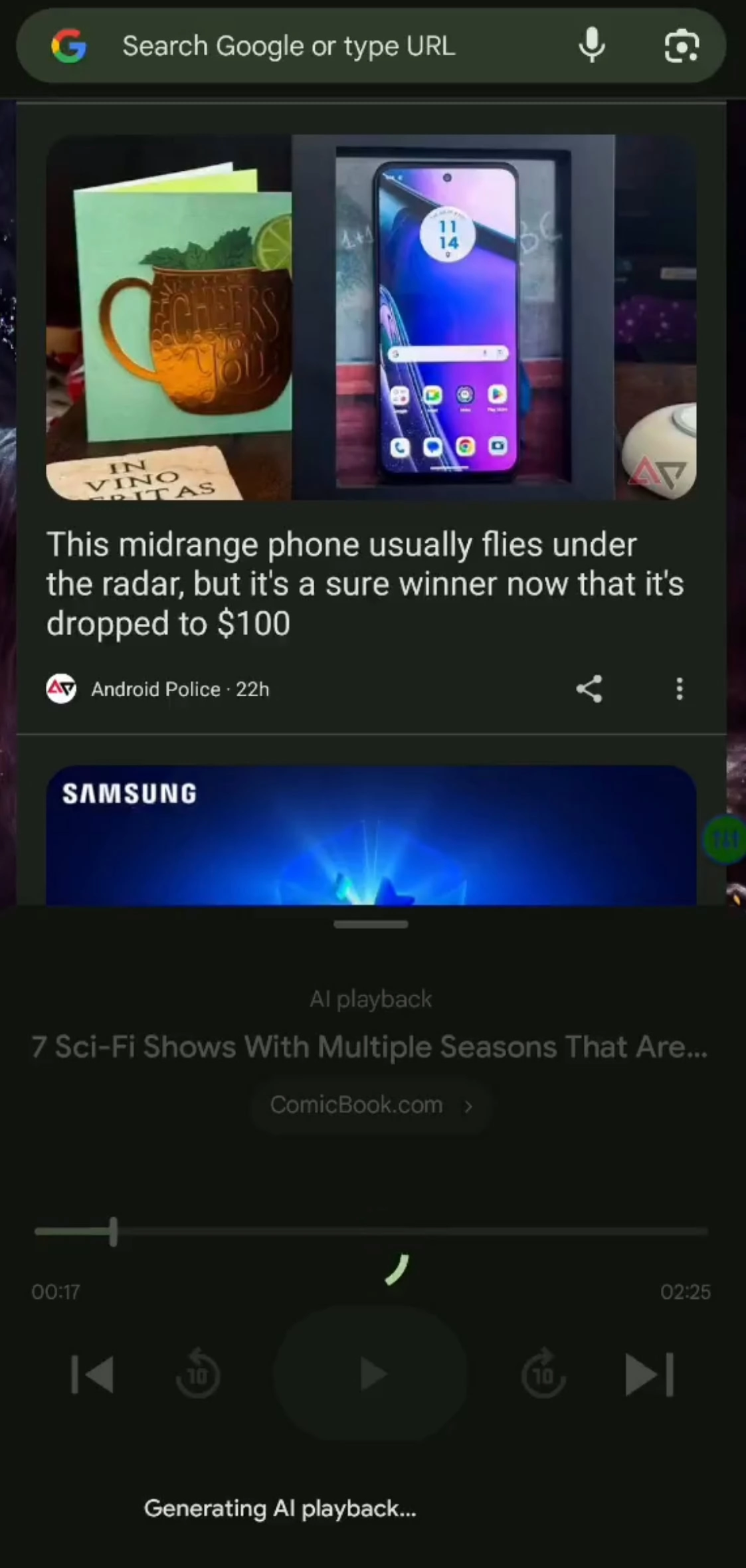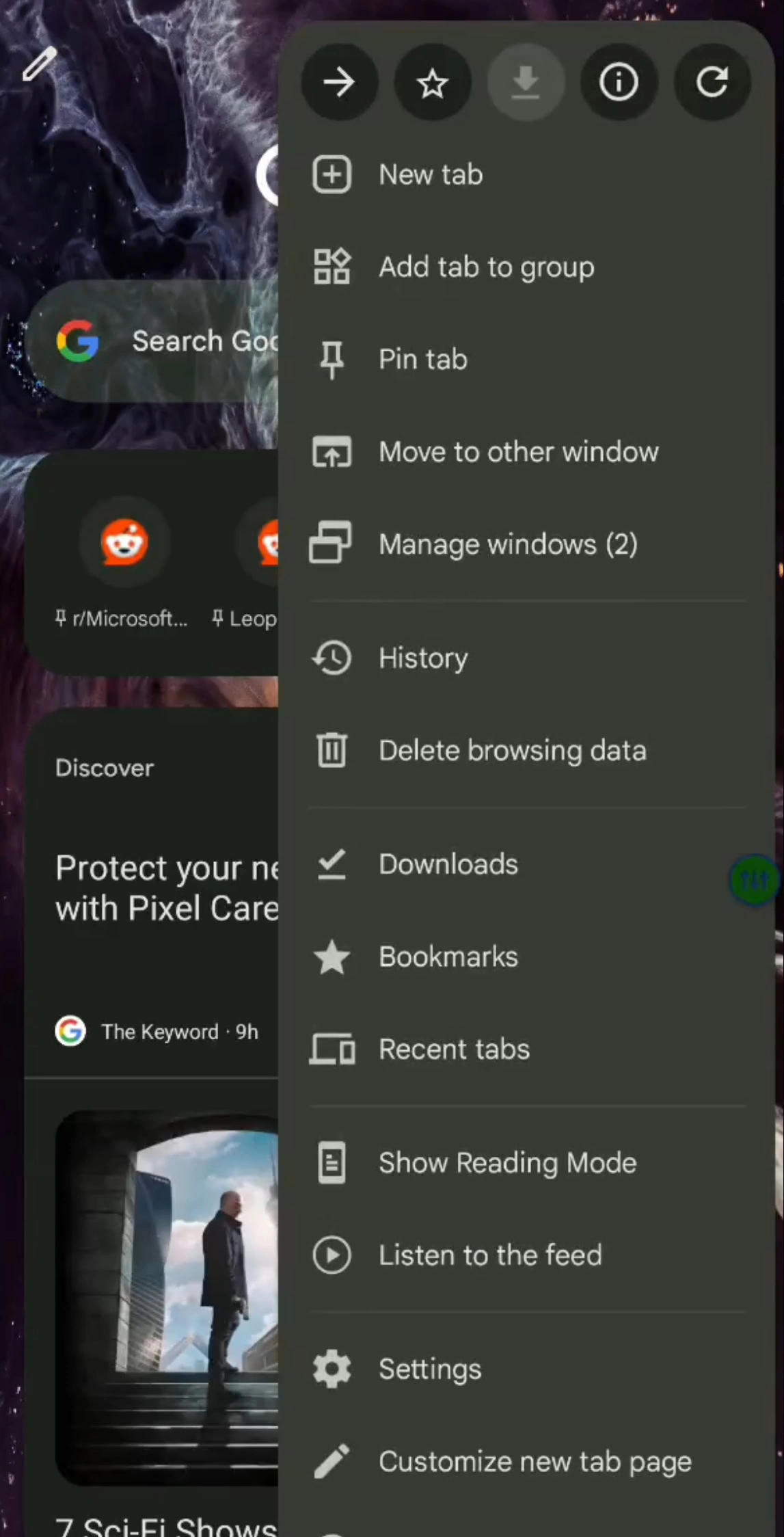Google is experimenting with a new way of enjoying the contents on Chrome for Android: not only the automatic reading of the web pages, but real Podcast style audio synthesis generated by the AI. After introducing Notebooklm As a summary and reworking tool of complex texts, the Mountain View company seems willing to bring the same technology directly to the most used mobile browser in the world. The result? A function capable of transforming the Discovery feed into a conversational audio flow, which summarizes the proposed news in a natural and smooth way. A sort of voice assistant who tells the news for us, with dedicated checks to jump from one article to another or go back ten seconds. A move that could change the way we inform ourselves, making the reading experience more similar to a personalized podcast.
Follow Google Italia on Telegram, Receive news and offers first
Notebooklm arrives on Chrome: the feed becomes a podcast
According to what has been discovered by the user and leaker Leopeva64 On X, the new option “Liste to the feed” has appeared in the latest versions Chrome canary For Android. In practice, instead of limiting yourself to reading the word for word the text of a page, the system generates a synthesis with a colloquial tone, similar to a radio discussion. The voices are very reminiscent of those already tested on notebooklm, confirming the use of the same technological infrastructure.
The operation seems to be designed to bring the experience of use closer to that of a playlist: just a tap to start playing, with the possibility of pausing, jumping back or back ten seconds, or move on to the next article of the Discovery feed. The UI recalls that of any multimedia player and automatically adapts to the theme of the device, making the integration fluid and natural.


A function still in the test phase
For now the novelty is not available to everyone, in fact the function seems active only on a restricted group of account. This suggests an A/B test destined to collect feedback before a wider rollout. The times remain uncertain, but it is not excluded that Google can formalize the novelty by the end of 2025perhaps in conjunction with a wider update of Android’s IA functions.
If confirmed, the introduction of audio synthesis will mark an important change of step. As a simple text reader, Chrome would become a “hands-free” use tool capable of reworking contents as a personalized podcast, sewn on the user’s information tastes. A step forward that fits into the wider strategy of Google, namely that of transforming artificial intelligence from simple support to the protagonist of the daily experience.

